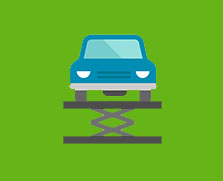Should I allow my BMW 120d's turbo to cool after driving?
I was interested in your comments about letting a very hot turbo idle for 30 seconds before switching off. Am I correct in interpreting this as applying to all turbos regardless of make of car? Last December I bought a BMW 120d, first registered June 2011, from a main dealer at an attractive price. I do less than 10,000 miles a year with a lot of short runs that prompted me to ask about possible particulate filter problems. I was told I'd nothing to worry about as that didn't apply to BMW engines. Is that your experience? I would be grateful for your comments.
Yes, the hot turbo issue applies to all turbos. Diesel turbos generally run slightly cooler than petrol turbos and are cooled only by engine oil passing through their turbo bearings. If the engine is switched off when the turbo is red hot and oil ceases to be pumped through the turbo bearing, then the oil in there and also in the supply pipe to the bearing can carbonise. Petrol turbos are almost always water cooled as well as oil cooled, but there is a limit to how much the cooling can cool a red hot turbo, so it is still wise to idle for 30 seconds or so when the turbo is red hot. Turbos are usually at their hottest after towing something, after a long ascent, or after a long period at constant speed on the motorway. The danger is when you stop to fill up with fuel. Usually the turbo undergoes a 'cooling off' period between the end of the motorway and your destination. In my experience, BMW diesel turbo engine regenerate their DPFs quite well after a series of short runs of 6 – 8 miles. If you repeatedly drive shorter distance then you will need to take the car for longer runs to ensure that the unburned hydrocarbon soot in the filter is burned off.
Answered by Honest John on




